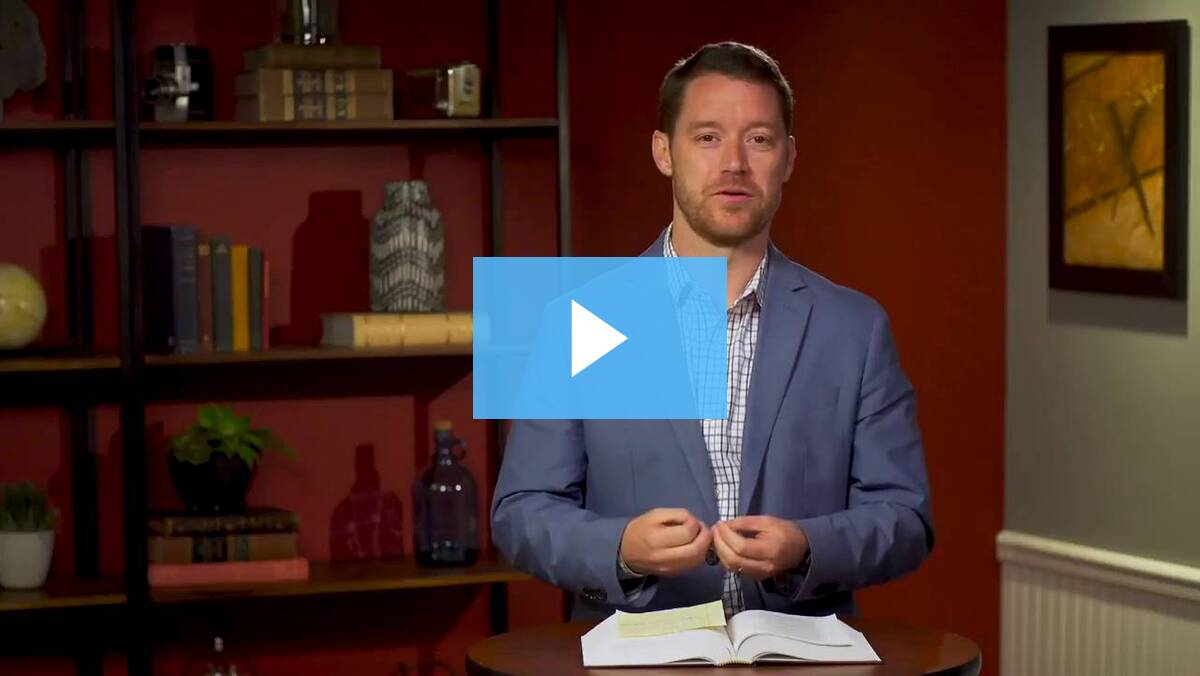Today’s post is adapted from Apologetics at the Cross, a new book, and course from Joshua D. Chatraw and Mark D. Allen. It is sponsored by Zondervan Academic.
Apologetics, in its most basic form, offers an appeal and defense for the Christian faith. In other words, apologetics, through word and deed, answers both why a person can believe (defense) and why a person should believe (appeal).
The goal of apologetics is to clear away the debris of doubt and skepticism to make a path for the gospel to be heard. For some, this sounds attractive. For others, making an appeal and a defense for the Christian faith sounds like a distraction from the gospel.
Here are four things you should know about apologetics:
1. Not everyone needs philosophical arguments for their faith
“Apologetics is where it’s at.”
When a distinguished colleague made that assertion, I remember thinking, Are you serious?
Observing the professors and administrators around me nodding their heads in agreement, I quickly realized there was a disconnect between the way they saw apologetics and the way I saw it. While they embraced it, I held it at arm’s length.
But why?
Because apologetics seemed only to answer questions no one in my orbit was asking.
For several years, I pastored a church in suburban Virginia. Our congregation was mostly made up of young, up-and-coming, middle- and upper-middle class families. They were not asking for philosophical arguments about God.
What they wanted to know was how to make their marriages work, raise healthy and high-achieving kids, succeed in their careers, reduce stress, deal with their feelings of loneliness, overcome addictions, recover from loss and pain, and know that God was real and working in their lives.
It seemed that if God existed, we would be convinced of his existence not by arguments, but rather by experiencing him in our daily lives.
A few years later, I pastored a small church made up of mostly elderly folks, located in the county seat of a farming community. Early in my tenure, we advertised a Sunday evening series based on David T. Lamb’s book, God Behaving Badly. A layperson had recently taught a popular Sunday evening series on end-time events, so it seemed reasonable to expect this series would also be well attended.
Yet when the time came, no one from the community was there. The congregation seemed to enjoy the series, but I’m not sure many of them understood its relevance. It seemed for that community, apocalyptics were more intriguing than apologetics.
2. Apologetics uses our doubts to help us grow
My twenty-year-old son, Colton, hit a crisis of faith. At first, all was well. His first year of college was life-changing, and I had never seen him so happy. But then at the beginning of his second semester, Colton crashed.
It was like he had lost his way. He didn’t know what he wanted to do. School was no longer interesting to him. He dropped out of college and began hanging out with friends who were intelligent, but unambitious and atheistic. Colton spiraled into a morass of doubt and depression. I hoped he would benefit from reading apologetic books. The material initiated fruitful discussions between him and me. While not leaving all of his doubts behind, he began to grow in his faith again.
Through these books and the conversations we had, God sparked something in Colton. He matriculated in a different university and majored in biblical studies. He was like a sponge, soaking in all the school had to offer: Bible, theology, philosophy, and, of course, apologetics. His faith awakened his curiosity; his sincere doubts only pushed him deeper into faith. By God’s grace, this experience affected me as well, sparking my own imagination concerning the past, present, and future of apologetics.
3. Apologetics isn’t just for Bible scholars and academics
After I became chair of the Bible and theology department at a university, another experience revealed the relevance of apologetics in today’s world.
I received an email from a former church member. She and her husband had been model Christian parents at our church, deeply involved in serving others, homeschooling their children, and living in a vibrant Christian community. They were the kind of family that gives strength and stability to a young congregation, which is why I was surprised by the contents of her email.
Her husband had become an agnostic. She looked to me for help: What should she do? Though a capable and intelligent person, she felt overwhelmed in this situation. In her own words:
To be honest, I am really trying to stay calm and not worry about him sharing with the kids and what that could mean for their futures. Due to that, I don’t want to be ignorant and not be able to counter some of the issues. But as I start to reluctantly step my toes into the water, all I see is a bunch of scholars who don’t agree, debate (and attack) each other’s arguments, and think that they have the answer and the other side is ignorant/blind.
This is a snapshot of the world we live in. Her words reminded me that many issues formerly left to academia were now being introduced to the masses, often by skeptics. No longer can apologetics be left to scholars. Current and future Christian leaders, whether working inside or outside the academy, must be prepared and able to teach others.
4. Apologetics reveals the truth about God
Our world has changed not only on the street and in the halls of the academy, but also in the pews of the church. Philosopher James K. A. Smith describes the fragility of faith in our present age:
We live in the twilight of both gods and idols. But their ghosts have refused to depart, and every once in a while we might be surprised to find ourselves tempted by belief … On the other hand, even as faith endures in our secular age, believing doesn’t come easy. Faith is fraught; confession is haunted by an inescapable sense of its contestability. We don’t believe instead of doubting; we believe while doubting. We’re all Thomas now.
Christians today must not only fight against lust and for purity, against greed and for contentment, against pride and for humility; we must also fight against doubt and for faith. We must cry out to Jesus as the man in Mark 9 did, “I do believe; help me overcome my unbelief!” (v. 24). Though our battles for faith today are different from the battles of the past, they still have a lot in common.
At the same time, Christians have long understood that doubt is part of life. John Calvin wrote that it is possible for Christians to have a “perpetual conflict” with doubt and unbelief. Even this great Protestant Reformer recognized the fragility of faith, and he lived in a context considerably different from our own.
As Smith points out above, though, the situation in the West has changed drastically since the days of Calvin. The doubt of that day existed within a societal framework of belief. The overarching framework of Christendom was not called into question so much as the sincerity of the individual’s faith.
In the past, doubt could be summed up with the question, “Am I a true believer?” In our late modern age, the question has become, “Is Christianity true?”
We may not want to admit it, but faith is contested around every corner. Looking the other way is not an option. Most people today—believers and unbelievers alike—live in the space between absolute faith and absolute doubt.
When we understand our context, we realize that reflecting deeply on apologetic principles and combining our faith with reason and logic remains important.
Apologetics is as vital as ever.
Readers of Challies.com get 20% off the Apologetics at the Cross online course. Use coupon code CHALLIES to get your discount. Sign up now ›











